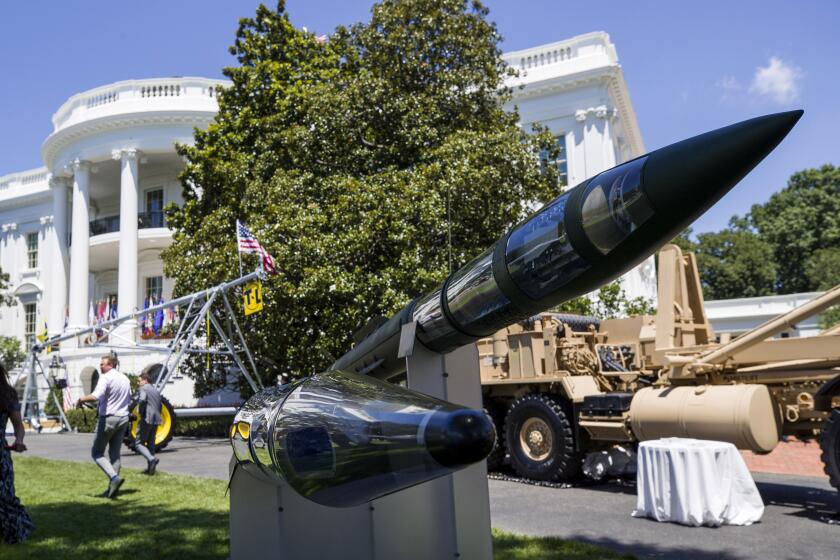Private prison operator under federal scrutiny spent millions settling mistreatment claims

The leading private prison company in the U.S. has spent more than $4.4 million to settle dozens of complaints alleging mistreatment — including at least 22 inmate deaths — at its Tennessee prisons and jails since 2016.
More than $1.1 million of those payouts involved Tennessee’s largest prison, the long-scrutinized Trousdale Turner Correctional Center, which is now under federal investigation.
Details of nearly 80 settlements provided to the Associated Press through public records requests allege brutal beatings, medical neglect and cruelty at CoreCivic’s four prisons and two jails in Tennessee.
In one case, a Trousdale inmate who feared for his life beat his cellmate, Terry Childress, to death to get transferred to a different prison, the federal lawsuit says. No guards came to Childress’ aid at the chronically understaffed facility, the suit claims. Childress’ family received a $135,000 settlement.
The family’s attorney, Daniel Horwitz, was ordered by a judge to stop publicly disparaging CoreCivic and to take down tweets calling it a “death factory.” He is suing over the gag order.
The U.S. Department of Justice recently announced an investigation of Trousdale, noting that reports of violence have been endemic since its 2016 opening. The investigation comes after years of well-documented “reports of physical assaults, sexual assaults, murders and unchecked flow of contraband and severe staffing shortages,” U.S. Attorney Henry Leventis has said.
“It does certainly appear as though settling lawsuits is a cost of doing business, rather than an alarm, a wake-up call, a siren,” said Mary Price, general counsel of Families Against Mandatory Minimums, which advocated for the Trousdale investigation.
CoreCivic, headquartered in Brentwood, Tenn., has a value of $1.44 billion as measured by market capitalization.
Surviving inmates or grieving families have often fought for years to reach settlements. Some advocated publicly for their cases, speaking to news outlets and participating in demonstrations. But accepting a settlement generally required quieting down. And, typical of settlements across industries, CoreCivic did not admit any wrongdoing.
The largest settlement was for $900,000 over a South Central Correctional Facility inmate’s suicide where staff falsified records. Three others were for about $300,000 apiece.
But those payouts were the exception. Half the settlements were for $12,500 or less. Some involved no money.
“In a lot of these cases, unfortunately, victims and family members of victims are in this position to choose between some amount of money, which is probably more than they’ve seen in a long time, or speaking their truth and sharing their stories and really being able to do something that brings this to an end,” said Ashley Dixon, a whistleblower who worked less than a year as a Trousdale corrections officer.
A CoreCivic spokesperson, Ryan Gustin, declined to comment on specific settlements, saying most have confidentiality terms. He said the corrections industry generally has had staffing issues and pointed to CoreCivic’s hiring incentives and strategies to backfill with workers from other facilities nationally. He said CoreCivic facilities offer “comprehensive medical and mental health care” and are closely monitored by the state.
The settlements make up a fraction of the lawsuits CoreCivic has faced over its Tennessee facilities. The 22 death settlements are also only a fraction of the 300-plus deaths in the four CoreCivic prisons since 2016.
More than half the hundreds of deaths were deemed natural, including Jonathan Salada, who lay on his cell floor at Trousdale crying in pain after being denied diabetes medication, according to a 2018 lawsuit. He was taken to the infirmary but returned to his cell twice before being found unconscious three days later and pronounced dead at the hospital. The lawsuit was settled for $50,000.
The settled lawsuits claim that even critical staff positions are sometimes unfilled at CoreCivic prisons, leaving inmates unprotected and unable to get help when attacked.
Adrian Delk received a $120,000 settlement after seven gang members nearly beat him to death for “between 20 minutes and one hour” with no one to intervene at Hardeman in 2016, according to his lawsuit. He was later stabbed and beaten again, suffering several permanent injuries.
Prison workers are not immune from the violence. At Trousdale in 2019, a counselor lost an eye and suffered other permanent injuries when an inmate attacked her with a homemade knife and raped her. Officials had withheld the inmate’s antipsychotic medication as punishment for illegal drug use.
Mattise, Loller and Hall write for the Associated Press.
More to Read
Sign up for Essential California
The most important California stories and recommendations in your inbox every morning.
You may occasionally receive promotional content from the Los Angeles Times.









